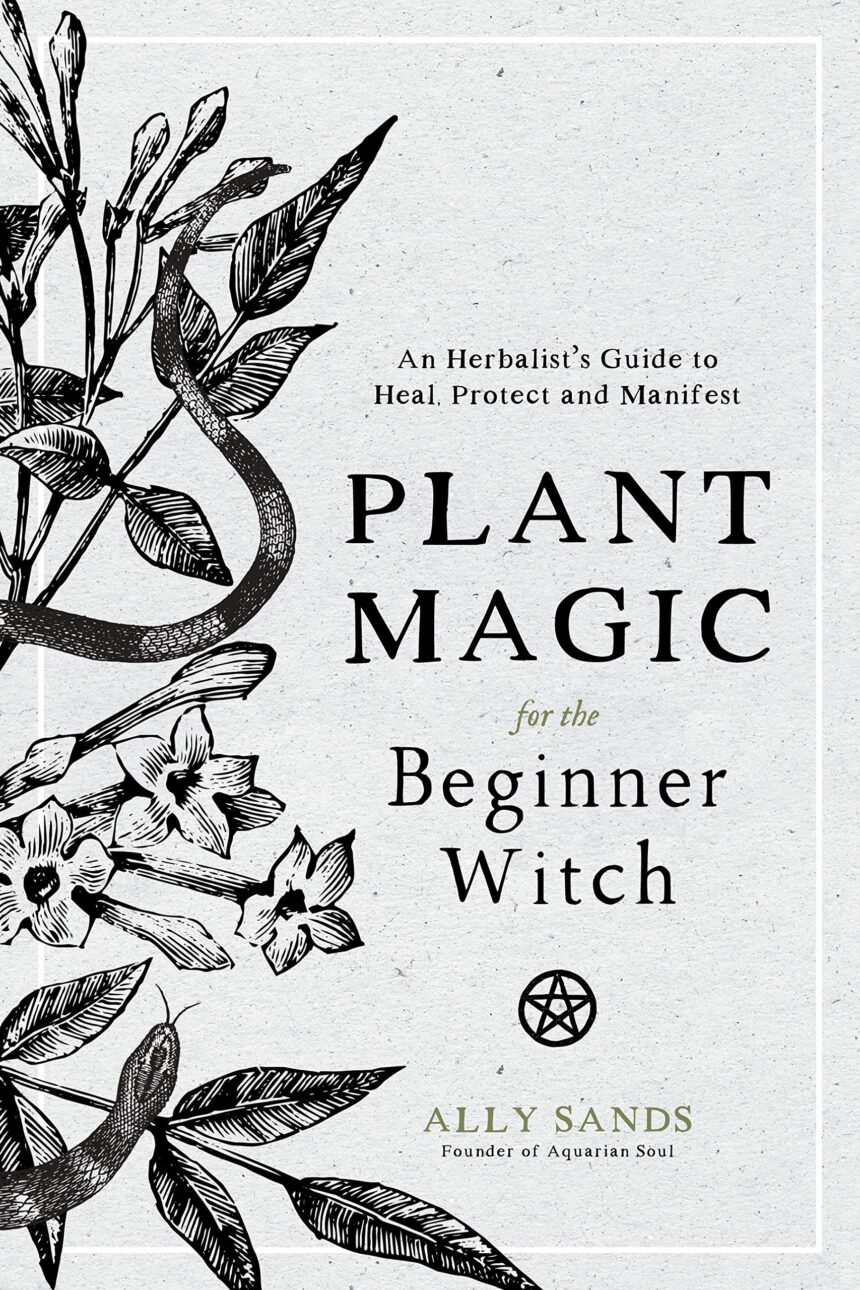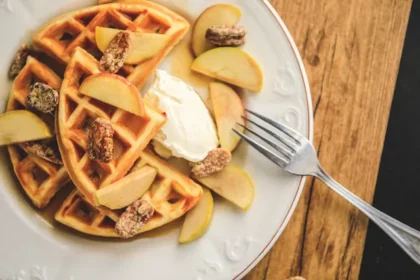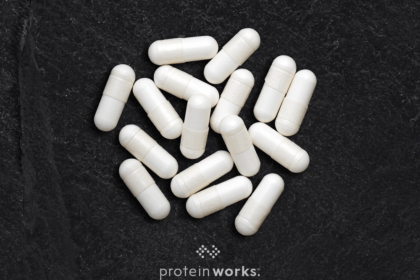Nature is a healing force that holds the power to both nurture our psychological well-being and also feed our spiritual side. To that end, Ally Sands, a certified master herbalist and self-proclaimed green witch (a witch who focuses on Earth, flowers, herbs, and plants), says a number of herbs for emotional healing are worth growing and/or buying, and then incorporating into mystical self-care practices. And given that the past few years have been a lot, you may be interested in exploring what natural gains you can snag from these herb-led practices.
“Even if you don’t have access to a large space, you can easily grow a few of your most-used herbs in a windowsill, a balcony, porch, or even in your kitchen,” says Sands, author of Plant Magic for the Beginner Witch: A Herbalist’s Guide to Heal, Protect, and Manifest. “The best part of using herbs for magical purposes is that a lot of the herbs overlap, so you can use them across a variety of different kinds of workings. Lavender, for example, can work for love, healing, protection, and cleansing rituals.”
Whether in dried or fresh form, below, Sands and holistic healer Maura Farragher share some essential herbs for emotional healing, along with how to use them in any number of calming rituals. Whether you want to take a DIY approach, embrace the herbs in your kitchen, or head to the store for a store-bought herb-infused self-care goody, ahead you’ll find plenty of ways to do just that.
What are the best herbs for emotional healing?
Whether you feel like you’re in an emotional rut or you’re working through intense heartache, knowing which mood-boosting herbs to reach for can help.
Rosemary
Rosemary is an excellent all-purpose perennial herb, and one Sands recommends that every witch has in her garden. While the scent can be stimulating for memory and for making really boss focaccia, the herb offers other emotional healing properties. “Rosemary is mainly used for protection and cleansing, but also for love, healing, and feminine power,” Sands says.
- How to use it: “Rosemary can be hung from a doorway to protect your house, in a floor sweep to rid your home of negative energy, or in a ritual oil that can be used to anoint yourself or your magical workings with.”
- Love to bake? Try this rosemary shortbread recipe.
- Craving some rosemary-infused self-care? Try Kneipp’s Goodbye Stress Water Mint & Rosemary Aromatherapy Bubble Bath.

Lemon Balm
Similar to chamomile, lemon balm is another comforting herb for emotional healing.
- How to use it: “Lemon balm can be used as a tea, in healing spells, in anxiety tinctures, or in ritual baths,” says Sands.
- Love to cook? Try this lemon balm pesto recipe.
- Craving some lemon balm-infused self-care? Try Pholk Beauty’s Aloe + Lemon Balm Face Mist.

What are the best herbs for stress and fatigue?
Tired of, well, feeling tired and overwhelmed? Reaching for the right herbs can help reinvigorate your body and mind.
Chamomile
Planting chamomile in your garden is almost like having your most supportive confidant waiting at your window (or, more specifically, in your windowsill garden). “Chamomile is one of the best herbs for friendship, luck, money and healing,” says Sands. “It is also great for relaxing, and soothing frazzled nerves.”
- How to use it: “You can use chamomile in an herbal tea blend for anxiety, as a tincture for relaxing, to mend a friendship, or to bring abundance into your life.”
- Love to bake? Try this chamomile tea cake recipe.
- Craving some chamomile-infused self-care? Try Eminence Organic’s Skin Care Soothing Chamomile Tonique.

Panax Ginseng
According to Farragher, who is a medium, Transformational Complementary Therapist, and founder of Enigma Wellness Clinic, panax ginseng helps to strengthen the qi energy in all the organs in the body. “It also quiets the Spirit, particularly the ethereal and the corporeal Soul, helps stop palpitations with anxiety, and where necessary, opens the heart and strengthens the resolve—so it’s a great all-rounder,” she exclaims.
- How to use it: Generally speaking, panax ginseng is consumed by mouth, either in tea or solid form.
- Craving some panax ginseng-infused self-care? While panax ginseng isn’t typically incorporated into recipes or skincare products, you can shop Moon Juice’s Ting Energy + Metabolism Non-Stim Supplement With Ginseng, which is formulated with the herb and beloved by over 2,000 Sephora shoppers.
P.S. If you feel particularly burnt out, Farragher says that Siberian Ginseng is another variation worth keeping in mind, as it helps to combat exhaustion.

What are the best herbs for physical healing?
If your body and mind feel physically off, one herb reigns supreme.
Peppermint
Peppermint is freshly aromatic and can provide a jolt if your vibes feel extremely off. “Peppermint is an uplifting, energetic plant that stimulates physical healing in magic,” says Sands.
- How to use it: “You can physically rub it on your body to discharge negative energy or ill health; make it into an herbal bundle; place a few handfuls in a healing bath; or dry it and add it to candles, sachets, and powders.”
- Love to cook? Try this peppermint brittle recipe.
- Craving some peppermint-infused self-care? Try The Body Shop’s Peppermint Cooling Foot Lotion.

What herb helps with trauma?
When working through trauma, it’s vital to give your body and mind that calming, loving boost it needs. One herb is particularly beneficial at doing just that.
Roses
In herbalism, Sands says, roses are believed to help calm the nervous system and heal the heart center. “You can make roses into a tincture to heal any trauma or nervous energy,” says Sands.
- How to use it: “You can use fresh petals in a love bath, distill them into a rose water, make a love-attracting incense, or use them for self-compassion and self-love.”
- Love to cook? Try this rose jam recipe.
- Craving some rose-infused self-care? Try Korres’ Wild Rose Brightening Absolute Oil.

What herbs are used for cleansing?
Maybe your brain feels bogged down by negative thoughts or perhaps your environment feels muddled by bad vibes. Whatever the case may be, cleansing herbs can help.
Garden sage
Maybe you’re familiar with the benefits of sage, having used it before to clear out negative energy left behind by repulsive couches and even more repulsive exes. That’s great, but also be sure to fact-check where you get your sage, and what sage you get.
“When you use sage in rituals, make sure you are using common garden sage,” Sands says. “White sage is an at-risk plant that’s being over-harvested in the wild. So even if you live in an area where it grows, I don’t suggest you forage it, as there are dozens of varieties of sage that can be substituted. Substitute culinary sage in any cleansing work that you might typically use white sage for.”
Furthermore, white sage is traditionally used for the Native American ritual of smudging, and those who aren’t members of the Native American community who co-opt the ritual using white sage are culturally appropriating it.
- How to use it: “Sage has strong cleansing and purifying properties that are best suited for making incense, dried bundles, or in ritual baths.”
- Love to cook? Try this garden sage pasta recipe.
- Craving some sage-infused self-care? Try Bliss’ Lemon & Sage Soapy Suds Body Wash.

Lavender
Lavender has many benefits, including de-stressing and easing into an easy slumber, and its versatility extends to mystical spells. Sands, for example, uses lavender to cleanse the house of negative energy and as a beacon of love. “Lavender can be used in love oils, powders, and in ritual baths as well,” she says.
- How to use it: “Keep a lavender sachet under your pillow at night to help you sleep or attract love into your life.”
- Love to bake? Try this lavender cookie recipe.
- Craving some lavender-infused self-care? Try Pacifica’s Lavender Moon Body & Pillow Mist.

Something To Keep in Mind
While each of these herbs has healing properties, Farragher points out that in Traditional Chinese Medicine, a single herb never quite cuts it. “Chinese Herbal Medicine always lends towards a prescription or group of herbs mixed together to rebalance, nourish, and clear heat (inflammation),” she says. So, the next time you think about adding a healing herb to your daily routine, consider incorporating a few for best results. And keep in mind: Most herbs have more than one benefit, Farragher says. So while the herb(s) you choose may be particularly beneficial for general emotional healing, you may find that they help you manage stress, overcome trauma, and live more happily.
Of course, if you want to encourage the best results possible, Farragher says you can combine herbal healing with acupuncture. “Energy healing can have profound effects and, with herbal medicine taken on a daily basis and with a realistic time frame, yields excellent results,” she says.









